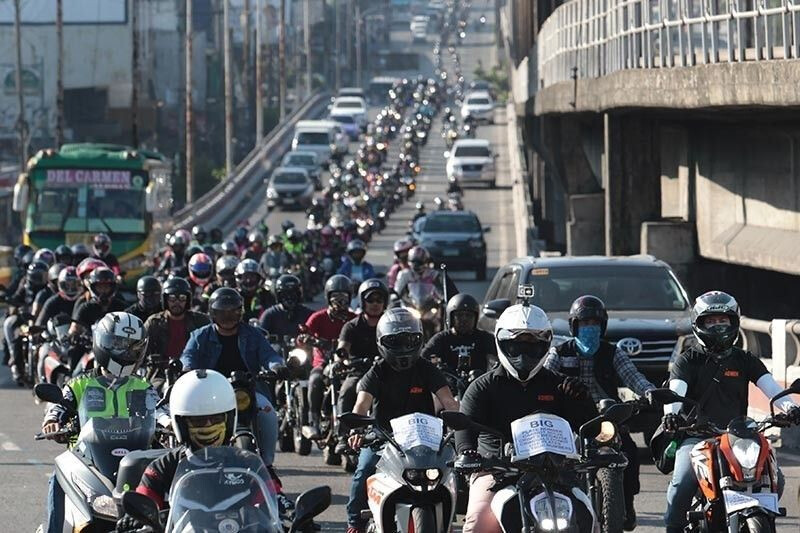
In the United States, motorcycles strongly symbolize freedom, rebellion, and leisurely weekend rides. However, looking at Southeast Asia, motorcycles take on a completely different meaning. They are not just a means of transportation but play a central role in daily life and are a crucial foundation for economic activity.
A prime example of this reality is the motorcycle market in the Philippines. In the first quarter of 2025, nearly 448,000 motorcycles were sold in the Philippines. This is not just a simple figure. In a relatively small island nation with a population of about 110 million, the Philippines sold more motorcycles in just three months than the entire US market did in 2023. According to data from the Federation of Asian Motorcycle Industries (FAMI), the Philippines' first-quarter motorcycle sales increased by 10% compared to the same period last year, and local production is also active, with over 232,000 motorcycles assembled within the Philippines in the first two months of this year.
These remarkable sales figures are the combined results of the top five players in the Philippine motorcycle market: Honda, Yamaha, Suzuki, Kawasaki, and TVS. These companies account for approximately 80% of the total motorcycle sales and production in the Philippines, leading the market. While Japanese brands dominate the market, Indian manufacturer TVS has established a solid presence with its affordable and reliable small motorcycles. It is important to note that FAMI's data does not include sales figures from emerging players like CFMoto and QJ Motor, or premium brands such as Ducati, BMW, KTM, and Aprilia. Therefore, the actual motorcycle sales in the Philippines are estimated to be much higher than the reported figures.
Unlike the US market, where larger displacement motorcycles are preferred, the Southeast Asian market is dominated by small scooters and commuter models ranging from 110cc to 155cc. In the Philippines, models like the Honda Click, Yamaha Mio, and Suzuki Raider 150 rule the roads. These motorcycles are not just popular models but have become essential means of transportation in the daily lives of Filipinos. Scooters are the best choice for navigating Manila's notorious traffic congestion, and for those who make a living through delivery or motorcycle taxi services, they are like two-wheeled offices. For many Filipinos, motorcycles are the primary, and sometimes the only, mode of transportation.
Interestingly, the same brands have completely different images in different markets. In the United States, Honda is famous for large models like the Gold Wing and Rebel 1100, while Yamaha brings to mind the MT-07 or R1. Kawasaki is represented by the Ninja series. However, in most Asian markets, including the Philippines, these brands generate enormous profits through scooters, underbones, and small commuter models. These motorcycles boast excellent fuel efficiency (over 50 km per liter, or about 47 mpg) at prices lower than an iPhone. They are easy to park, have low maintenance costs, and focus on basic transportation without complex features.
While the Philippines' first-quarter sales recorded astonishing figures, other Southeast Asian countries also boast significant motorcycle market sizes. Indonesia, with a much larger population, sold over 1.1 million motorcycles in just two months, and Vietnam recorded 673,000 units in the first quarter. This clearly shows that Southeast Asia is not just a strong motorcycle market but the largest motorcycle market in the world.
As the economies of Southeast Asian countries recover from the COVID-19 pandemic, consumer lending is also on the rise. Philippine banks reported that auto loans increased by over 24% year-on-year earlier this year, a strong indicator that Filipinos are actively considering motorcycle purchases for commuting, buying necessities, and maintaining their livelihoods, despite still-high interest rates.
The stark contrast in how motorcycles are used in the West and the East has significant implications. In the United States, motorcycles often symbolize a lifestyle, but in Southeast Asian countries like the Philippines, motorcycles are life itself. They are not just toys or weekend escapes but essential means of transportation, tools for generating income, and symbols of personal independence. This also shows how crucial this region is to the global motorcycle industry. Brands struggling to sell high-priced models in Europe or North America are thriving in Southeast Asia thanks to steady sales volumes, high brand loyalty, and constant demand for affordable two-wheelers.
[Copyright (c) Global Economic Times. All Rights Reserved.]




























